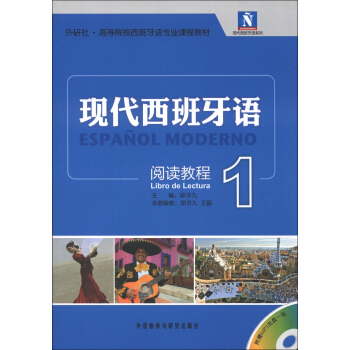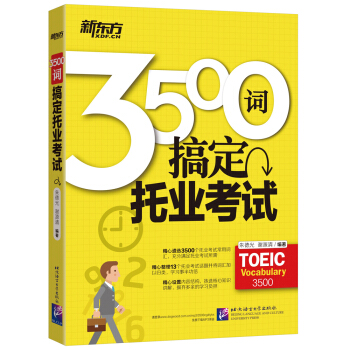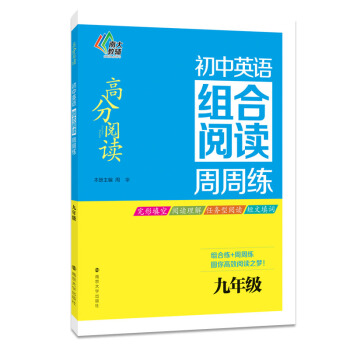![牛津英文经典:国富论(英文版) [An Inquiry into the Nature and Causes of the Wealth of Nations]](https://pic.tinynews.org/11894387/56f50fa5Nfb04b065.jpg)

具体描述
编辑推荐
牛津大学出版百年旗舰产品,英文版本原汁原味呈现,资深编辑专为阅读进阶定制,文学评论名家妙趣横生解读。内容简介
亚当·斯密是十八世纪中期英国负盛名的政治经济学家和伦理学家,他一生研究的学问涉及天文学、纯文学、修辞学、哲学、伦理学、政治学、法学和政治经济学等。《国富论》奠定了他作为英国古典政治经济学奠基人的崇高地位和名望。作者简介
亚当·斯密(1723—1790),被誉为“现代经济学之父”。1723年出生在苏格兰的柯科迪,青年时就读于牛津大学,1751年至1764年在格斯哥大学担任哲学教授。在此期间,斯密发表了他的*一部著作《道德情操论》,确立了他在知识界的威望。但是,他的不朽名声则得自于1776年出版的伟大著作《国民财富的性质和原因的研究》(简称《国富论》)。这部著作使其在余生中享受着无尽的荣誉和爱戴,并延续至今。精彩书评
回到经济学的基本问题,让我们重读亚当·斯密,不要再相信凯恩斯主义的那些政策。 ——张维迎虽然斯密也劝说放任自由,但他的论证却更多地是反对政府干预和反对垄断;虽然他赞扬贪欲的结果,却又几乎总是鄙视商人的行为和策略。他也不认为商业制度本身是完*值得赞美的。 ——谢宗林
这本书需要人们聚精会神地去读才能读进去,而目前很少有人能坐下来专心读书,因而本书*初也许不会受到非常热烈的欢迎。 ——大卫·休谟
目录
IntroductionNote on the Text
Select Bibliography
A Chronology of Adam Smith and His Time
THE WEALTH OF NATIONS
Explanatory notes and Commentary
Index
精彩书摘
The annual labour of every nation is the fund which originally supplies it with all the necessaries and conveniences of life which it annually consumes, and which consists always, either in the immediate produce of that labour, or in what is purchased with that produce from other nations. According therefore, as this produce, or what is purchased with it, bears a greater or smaller proportion to the number of those who are to consume it, the nation will be better or worse supplied with all the necessaries and conveniences for which it has occasion. But this proportion must in every nation be regulated by two different circumstances; first, by the skill, dexterity, and judgment with which its labour is generally applied; and , secondly, by the proportion between the number of those who are employed in useful labour, and that of those who are not so employed. Whatever be soil, climate , or extent of territory of any particular nation, the abundance or scantiness of its annual supply must, in that particular situation, depend upon those two circumstances. The abundance or scantiness of this supply too seems to depend more upon the former of those two circumstances than upon the latter. Among the savage nations of hunters and fishers,* every individual who is able to work, is more or less employed in useful labour, and endeavours to provide, as well as he can, the necessaries and conveniencies of life, for himself, or such of his family or tribe as are either too old, or too young, or too infirm to go a hunting and fishing, Such nations, however, are so miserably poor, that, from mere want, they are frequently reduced, or, at least, think themselves reduced, to the necessity sometimes of directly destroying, and sometimes of abandoning their infants, their old people, and those afflicted with lingering diseases, to perish with hunger, or to be devoured by wild beats. Among civilized and thriving nations, on the contrary, though a great number of people do not labour at all, many of whom consume the produce of ten times, frequently of a hundred times more labour than the greater part of those who work; yet the produce of the whole labour of the society is so great, that all are often abundantly supplied, and a workman, even of the lowest and poorest order, if he is frugal and industrious may enjoy a greater share of the necessaries and conveniences of life than it is possible for any savage to acquire. The causes of this improvement, in the productive powers of labour, and the order, according to which its produce is naturally distributed among the different ranks and conditions of men in the society, make the subject of the First Book of this Inquiry. Whatever be the actual state of the skill, dexterity, and judgment with which labour is applied in any nation, the abundance or scantiness of its annual supply must depend, during the continuance of that state, upon the proportion between the number of those who are annually employed. The number of useful and productive labourers, it will hereafter appear, is every where in proportion to the quantity of capital stock which is employed in setting them to work, and to the particular way in which it is so employed. The Second Book, therefore, treats of the nature of capital stock, of the manner in which it is gradually accumulated, and of the different quantities of labour which it puts into motion, according to the different ways in which it is employed. Nations tolerably well advanced as to skill, dexterity, and judgment, in the application of labour, have followed very different plans in the general conduct or direction of it; and those plans have not all been equally favourable to the greatness of its produce. The policy of some nations has given extraordinary encouragement to industry of country; that of others to the industry of towns. Scarce any nation has dealt equally and impartially with every sort of industry. Since the downfall of the Roman empire, the policy o Europe has been more favourable to arts, manufactures, and commerce, the industry of towns; than to agriculture, the industry of the country. The circumstances which seem to have introduced and established this policy are explained in the Third Book. Though those different plans were, perhaps, first introduced by the private interests and prejudices of particular orders of men, without any regard to, or foresight of, their consequences upon the general welfare of the society; yet they have given occasion to very different theories o political oeconomy;* of which some magnify the importance of that industry which is carried on in towns, others of that which is carried on in the country, Those theories have had a considerable influence, not only upon the opinions of men of learning, but upon the public conduct of princes and sovereign states. I have endeavoured, in the Fourth Book, to explain, as fully and distinctly as I can, those different, and the principal effects which they have produced in different ages and nations. To explain in what has consisted the revenue of the great body of the people, or what has been the nature of those funds which, in different ages and nations, have supplied their annual consumption, is the object of these Four first Books. The Fifth and last Book treats of the revenue of the sovereign, or commonwealth. In this Book I have endeavoures to show; first, what are the necessary expences of the sovereign, or commonwealth; which of those expences ought to be defrayed by the general contribution of the whole society; and which of them, by that of some particular part only, or of some particular members of it; secondly, what are the different methods in which the whole society, and what are the principal advantages and inconveniencies of each of those methods: and, thirdly and lastly, what are the reasons and causes which have induced almost all modern governments to mortgage some part of this revenue, or to contract debts, and what have been the effects of those debts upon thereal wealth, the annual produce of the land and labour of the society. BOOK I Of the Causes of Improvement in the productive Powers of Labour, and of the Order according to which its Produce is naturally distributed among the different Ranks of the People CHAPTER I Pf the Division of Labour THE greatest improvement in the productive powers of labour, and the greater part of the skill, dexterity, and judgment with which it is any where directed, or applied, seem to have been the effects of the division of labour.* The effects of the division of labour, in the general business of society, will be more easily understood, by considering in what manner it operates in some particular manufactures. It is commonly supposed to be carried furthest in some very trifling ones; not perhaps that it really is carried further in them than in others of more importance: but in those trifling manufactures which are destined to supply the small wants of but a small number of people, the whole number of workmen must necessarily be small; and those employed in every different branch of the work can often be collected into the same workhouse, and placed at once under the view of the spectator. In those great manufactures, on the contrary, which are destined to supply the great wants of the great body of the people, every different branch of the work employs so great a number of workmen, that it is impossible to collect them all into the same workhouse. We can seldom see more, at one time, than those employed in one single brance. ……前言/序言
Who owns the Wealth of Nations? Since the early nineteenth century Smith has been the patron saint of homo economicus. Victorian liberal economists invoked his work to justify the pursuit of individual self-interest in a free market. The political and economic trends of the more recent past—the drive to privatization, the concentration on the profit motive as the key to market effectiveness and economic co-ordination—in Thatcherite Britain and Reaganite North America (but also in St Petersburg and Moscow), claim descent from Smith. His name is taken by the Adam Smith Institute, a right-wing think-tank whose aim is to devise policy based on market principals; but his interpreters and descendants include Karl Marx. For not only did Smith view merchants and manufacturers with deep suspicion, but he considered the sigh of a properly functioning market system to be the maximization of material benefits to society’s lowest members. The comprehensiveness of his vision of a self –regulating market appears to confirm him as the founding father of economic conservatism; but against his celebration of capitalism as the surest means of wealth accumulation should be set a pessimism at the dehumanizing potential of industrial society which appears appears to anticipate Marx’s alienation theory. Nor should we too readily conflate Smith’s socio-economic prescriptions with conditions in the late twentieth century. His experience as an eighteenth-century citizen was of pre-industrial, small-scale technology, multinational interests of modern institutions the dangerous consumption of non-renewable natural resources, or the problems of post-industrial unemployment. Immediately relevant in the ideological climate of the late twentieth century , the Wealth of Nations is firmly embedded in a complex of assumptions surrounding the birth of a consumer society in the eighteenth century. I There is nothing which requires more to be illustrated buy philosophy than trade does. . . A merchant seldom thinks but of his own particular trade. To write a good book upon it, a man ust have extensive views. (Samuel Johnson) If the significance of Adam Smith’s Inquiry into the Nature and Causes of the Wealth of Nations has been too narrowly restricted to no more than the beginnings of technical economics, this is in Some measure the consequence of his own famous exposition of the division of labour. As a plea for specialization, it is a theory which appears to justify modern interpreters in editing out of consideration Smith’s complicating deliberations on the nature of law, government, and social and individual morality as they affect the operations of a market economy. In the 1970 Penguin edition of the Wealth of Nations, for example, Books 1 and 2 form the substance of a work ‘solely concerned with Smith’s contribution to the principles of economics’, and Books 3 is included simply ‘in order to make the maximum use of the available space’. In justification, the editor, Andrew Skinner, anticipates his readers’ response by arguing that ‘[i]t would probably be agreed that the first two books contain the central part of Smith’s work as a theoretical economist, and the real basis of a profoundly influential system of thought’. With less tactical skill. The same argument is employed to explain the complete absence of Book 5 from the recent Everyman reprint of 1991: Book 5, the reader is assured, adds nothing new. D. D. Raphael concludes his Introduction by observing that: ‘Books I-IV do, however, contain the whole of what Smith had to say in carrying out his aim, “An Inquiry into the Nature and Causes of the Wealth of Nations”.’ What both of these editions fail to acknowledge is the importance of that man of ‘extensive views’ whom Dr Johnson described in explaining Smith’s qualifications for writing on economics. It is the original embedding of the economic argument within a wider cultural, intellectual, and historical enquiry which the present selected edition attempts to reinstate against the more traditional view of the Wealth of Nations as the ‘classic’ economics textbook. By including large sections from all five books, the discursive context of Smith’s model becomes apparent. An enquiry in five books, the Wealth of Nations sites economic activity within the framework of a wide-ranging discussion of social institutions and human propensities. The effect of its extended description is to complicate and problematize economic analysis by driving the economic impulse deeper into the recesses of human personality as the nature basis of our psychological and social existence. Book 1 is concerned to outline that division of labour which constitutes the wealth of nations, and to establish a new division of society into landlords, wage-earners, and capitalists, who in their various combinations activate and keep in motion the mechanism of the economic process. As Smith summarizes his argument so far in the ‘Conclusion to Chapter 11: The whole annual produce of the land and labour of every country, or what comes to the same thing, the whole price of that annual produce, naturally divides itself. . . into three parts; the rent of land, the wages of labour, and the profits of stock; and constitutes a revenue to three different orders of people; to those who live by rent, to those who live by wages, and to those who live by profit. These are three great, original and constituent orders of every civilized society, from whose revenue that of every other order is ultimately derived. (p. 155) Book 2 is concerned with accumulation, I its economic and psychological aspects—with productive and unproductive labour, the virtues of parsimony, and the human urge to better our condition (that is, to amass greater and greater wealth). Taken together, Books 1 and 2 do, indeed, form an economic treatise—Smith’s demonstration of what constitutes the wealth of nations, and in particular the wealth of the modern commercial nation. But without Book 3 their argument would lack the significant historical dimension which eventually reveals how it is that the humblest beneficiary of the division of labour, the ‘industrious and frugal peasant’ of the opening chapter, excels in his material comforts the African king, ‘the absolute master of the lives and liberties of ten thousand naked savages’ (p.20). For Book 3 is dedicated to historical explanation, to the historical and geographic relation of town to country, and in particular to the emergence of the ur-capitalist protagonist from the medieval contest for dominance between the town guilds and the feudal landowners. Smith’s subject, broadly historicized here, is the relation between those legislative and administrative institutions which constitute and protect human society, and that individual liberty from regulation which is the motor of economic development. Is society a community of private interests or public regulation? Book 4 ranges widely while purporting to be a critique of two systems of political economy—Mercantilism, the still feudally minded philosophy of wealth through trade, dominated economic thought and practice between the mid-sixteenth and late seventeenth centuries. It recognized the need to safeguard a potent national economy through high import tariffs and state intervention. ‘Physiocracy’ is the label attached to the doctrines of a group of eighteenth-century French economists, led by Fran?ois Quesnay, who argued, in contrast, that mercantile stock is ‘sterile’, and that agriculture is the only source of wealth because it alone produces a surplus, other manufactures merely reproducing what they consume. Most of Book 4 is concerned to expose the flaws in the Mercantilist system, under whose intricate controls, it is claimed, the British and other European economies have been severely hampered.用户评价
这本书的结构布局实在称得上是宏大叙事中的典范。它不像我们现在市面上常见的经济学教科书那样,将复杂的理论拆解成一个个清晰的模块,而是采取了一种更具哲学思辨色彩的、层层递进的论证方式。作者首先从考察不同国家财富的真正源泉——劳动——开始,这本身就奠定了一个非常坚实的基础。接着,他细腻地描绘了劳动分工带来的效率提升,那个著名的制针厂的例子,虽然简单,却精准地揭示了工业化初期最核心的生产力飞跃机制。更令人印象深刻的是,斯密并未将经济活动视为孤立的个体行为,而是将其置于一个庞大的社会伦理和政治背景之下进行审视。他似乎总是在提醒读者,经济的繁荣是建立在稳固的法律、正义的保障和合理的制度之上的。读到关于资本积累和利息的部分,我甚至能感受到一种对当时重商主义思潮的深刻批判,那种试图通过限制而非解放来积累财富的短期行为,在斯密的远见卓识面前显得如此的短视和迂腐。这种全面的视野,让我对“经济人”的理解不再是狭隘的自私,而是一种植根于特定社会结构中的、追求改善自身处境的复杂动机。
评分整体而言,这是一部跨越了时代的“指南针”,它所构建的分析框架,至今仍是理解现代经济困境和机遇的起点。虽然时代背景发生了翻天覆地的变化——我们如今面临的挑战是信息过载、全球供应链的脆弱性以及金融创新带来的风险,而非简单的重商主义桎梏——但《国富论》的核心精神依然有效:即对自由市场原则的坚守、对过度监管的警惕,以及对生产力提升的永恒追求。每次合上书本,我都会反思当下社会中的一些热点经济现象,试图用斯密提供的基本原理去解构它们。例如,在讨论国际分工和专业化时,他奠定的基础理论,仍然是我们理解全球化利弊的基础。这本书的价值不在于提供了一套放之四海而皆准的即时解决方案,而在于它提供了一套强大的、具有批判性的思维工具,帮助读者穿透表象,直达经济规律的本质。这是一本真正意义上的“常读常新”的学术巨著。
评分阅读体验中,最让我感到心潮澎湃的,是作者对“看不见的手”这一概念的论述。虽然这个短语本身被后世引用和简化得太多,以至于有时显得有些老生常谈,但在原著的语境中去体会它被首次提出时的那种洞察力,却是截然不同的体验。这绝不是一个简单的市场万能论的口号,而是一个基于对人类本性深刻洞察的复杂机制的描述。斯密描绘的是一个充满竞争、信息流动不完美、且充满偏见的社会中,个体为了自身利益最大化所做的无数决策,如何在整体上导向了一个相对最优的资源配置状态。这种从微观个体行为推导出宏观社会效率的逻辑链条,逻辑严密,充满说服力。我常常在想,在那个缺乏现代计量工具和数据支持的年代,斯密是如何构建出如此精妙的理论框架的?这不仅仅是经济学上的伟大成就,更是一种哲学上的胜利,它肯定了个体能动性的价值,同时也警示了过度干预的危险。书中对自由贸易和限制进口的批判,至今读来依然振聋发聩,显示了其思想的永恒性。
评分这部经典著作的英文原版,捧在手里就有一种沉甸甸的历史感。字体印刷清晰,纸张的质地也很有年代感,让人不禁联想到它跨越了多少个世纪,启发了多少代思想家和经济学人。阅读英文原版,对我来说最大的挑战与乐趣并存。挑战在于,十八世纪的英语,其句法结构和词汇选择,远比我们现代的口语和书面语要复杂得多,需要我时刻保持高度的专注,常常需要停下来反复揣摩亚当·斯密的那些精妙但略显古奥的措辞。然而,一旦克服了语言上的障碍,那种直抵思想源头的震撼感是无与伦比的。我仿佛能清晰地听见那个时代商业活动的喧嚣,感受到手工匠人制作物品时的专注,以及那些正在形成中的现代市场经济的脉络。这本书不仅仅是关于“财富”如何产生,更深刻地探讨了人类社会的组织形式、劳动分工的奇迹,以及个体追求私利的行动如何,在看不见的手的引导下,最终汇集成推动社会整体进步的巨大力量。每一次深入其中,都像是在进行一次穿越时空的学术探险,每翻过一页,都感觉自己对现代经济体系的基础理解又加深了一层,那种醍醐灌顶的瞬间,是任何中文译本都难以完全传达的。
评分从文笔的角度来看,这位苏格兰启蒙运动的思想家,其笔触之细腻和论证之清晰,完全可以与当时最优秀的文学家相媲美。他的叙事风格中带着一种老派的庄重感,但绝不枯燥。他善于运用历史的、地理的甚至人类学的观察来佐证他的经济学观点。比如,在讨论殖民地贸易时,他引经据典,分析了西班牙和葡萄牙在美洲的得失,那种将经济史与政治史紧密结合的写法,使得整个论述更加立体丰满,而不是冷冰冰的公式推导。我可以想象,当时的读者在读到关于美洲新大陆的贸易描述时,是何等的兴奋和好奇。这种将深奥的理论包裹在引人入胜的观察和历史案例中的叙事技巧,是当代许多学术著作所欠缺的。这本书的阅读过程,与其说是在学习一门学科,不如说是在与一位睿智的长者进行一场关于人类社会运作规律的深度对话,他的话语中充满了对人类理性和局限性的深刻理解。
评分非常不错。趁活动买了很多。包装完善。平相好。全英文。
评分感觉排版不是太好,印刷也质量不是太好,但应该是正版。
评分值得看的英國文學!正版
评分最后,还是好评吧!
评分貌似中文的都是从英文翻译来的,果断弃之,被人嚼了两遍味道肯定变太多,不如找个更贴和合原文的,比如英文
评分好好好好好好好好好好好好好好好好好好好好好好好好好好好
评分非常漂亮的书。包装完好。物流快。全英文。文学名著。牛津系列。一切都值得买。
评分书本不错,物流快,包装完好
评分《少年维特的烦恼》,很有名的一本书,这次买英文版,也是希望可以锻炼自己的英语能力。
相关图书
本站所有内容均为互联网搜索引擎提供的公开搜索信息,本站不存储任何数据与内容,任何内容与数据均与本站无关,如有需要请联系相关搜索引擎包括但不限于百度,google,bing,sogou 等
© 2026 book.idnshop.cc All Rights Reserved. 静思书屋 版权所有

![世界名著典藏系列:呼啸山庄(英文全本) [Wuthering Heights] pdf epub mobi 电子书 下载](https://pic.tinynews.org/10095985/rBEDik_Rt-8IAAAAAADZ6n2s5jcAAAfigFZHW8AANoC537.jpg)

![我们的汉语教室初级(3)(中英日文版)(附光盘1张) [Our Chinese Classroom] pdf epub mobi 电子书 下载](https://pic.tinynews.org/10828725/7f8b3090-0a92-4bc5-8498-1a9cc1a154da.jpg)
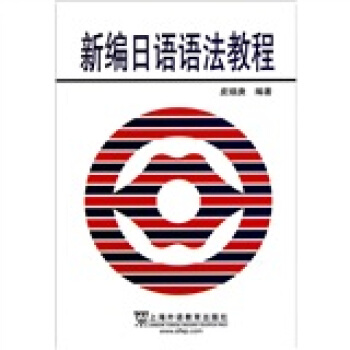
![书虫牛津英汉双语读物:爱情与金钱 [Love or Money? ] pdf epub mobi 电子书 下载](https://pic.tinynews.org/11215157/57ea2e8aNbf2437c9.jpg)
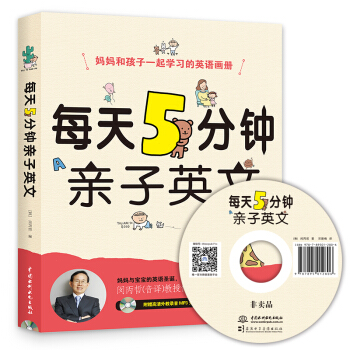

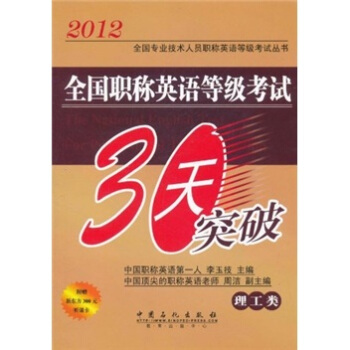

![丽声我爱小怪物双语阶梯阅读第一级至第六级套装(点读版 套装共6册 专供网店 附光盘) [4-9岁] pdf epub mobi 电子书 下载](https://pic.tinynews.org/11747813/55c47102Nee9ac173.jpg)

![法语语法点点通(初级) [Point Par Point] pdf epub mobi 电子书 下载](https://pic.tinynews.org/10953936/rBEhV1NDzwYIAAAAAAslv6oGjjEAALjUgN5DRQACyXX015.jpg)
